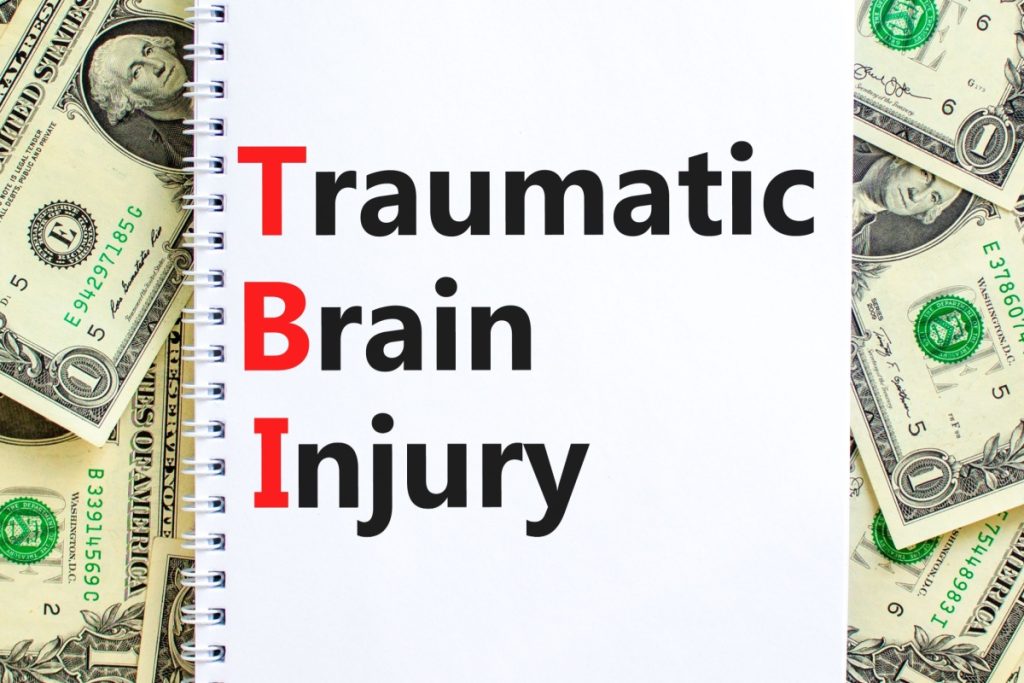A traumatic brain injury (TBI) is one of the most severe consequences of an accident, often leading to long-term complications. Whether sustained in a car crash, workplace accident, or a fall, TBIs can drastically impact a victim’s life. These injuries range from mild concussions to severe brain damage, affecting cognitive function, memory, motor skills, and emotional well-being. In many cases, recovery can be a long and challenging process, requiring extensive medical treatment, rehabilitation, and ongoing support. Understanding the warning signs, potential long-term effects, and legal options is essential for those affected, as early intervention and proper legal guidance can significantly influence the outcome of a case and the quality of life for the injured individual.

Understanding Traumatic Brain Injuries
A traumatic brain injury (TBI) occurs when an external force disrupts normal brain function. These injuries can range from mild concussions to severe brain damage, often requiring extensive medical treatment and rehabilitation. TBIs can have both immediate and long-term effects, including cognitive impairment, memory loss, mood changes, and physical disabilities. Recovery times vary depending on the severity of the injury, and some individuals may experience lifelong challenges.
Common Causes of TBIs
- Vehicle Accidents – Collisions involving cars, motorcycles, and bicycles frequently lead to head injuries due to sudden impact. Even with safety measures like airbags and helmets, high-speed crashes can result in serious brain trauma.
- Slip and Fall Incidents – Falling on unsafe surfaces or from heights can result in significant head trauma. Older adults and young children are particularly vulnerable to these types of injuries, especially in environments with poor lighting, uneven flooring, or lack of handrails.
- Construction Accidents – Dangerous job sites, especially in construction, can lead to serious injuries from falling debris, heavy machinery, or falls from scaffolding. Workers without proper protective gear are at a higher risk of TBIs in these high-risk environments.
- Pedestrian Accidents – Being struck by a vehicle while walking can cause severe brain injuries. Even at low speeds, the force of impact can result in concussions, skull fractures, or brain bleeding, leading to long-term complications.
Given the serious nature of TBIs, early diagnosis, prompt medical care, and appropriate rehabilitation are essential for maximizing recovery and improving quality of life. Prevention efforts, such as wearing helmets, using seat belts, and maintaining safe environments, play a crucial role in reducing the risk of these injuries.
Signs and Symptoms of a TBI
Recognizing traumatic brain injury (TBI) symptoms early is crucial for proper treatment and recovery. Symptoms can range from mild to severe and may appear immediately or develop over time.
Mild TBI Symptoms:
- Headache
- Nausea or dizziness
- Temporary confusion
- Sensitivity to light or sound
Moderate to Severe TBI Symptoms:
- Loss of consciousness
- Persistent headaches
- Memory loss and difficulty concentrating
- Slurred speech or coordination problems
TBIs can have long-term effects on cognitive function, emotional health, and physical well-being. If you or someone you know experiences any of these symptoms following a head injury, seek medical attention immediately. Early diagnosis and treatment can significantly improve recovery outcomes.
Long-Term Effects of a Traumatic Brain Injury
The long-term effects of a TBI can be devastating, affecting cognitive function, emotional well-being, and physical abilities. These effects can vary depending on the severity of the injury, the area of the brain affected, and the individual’s overall health. Some common long-term effects include:
- Cognitive Impairments – Individuals may experience memory loss, difficulty processing information, trouble concentrating, and challenges with problem-solving or decision-making. In severe cases, cognitive decline can resemble conditions such as dementia, impacting daily independence.
- Emotional and Behavioral Changes – A TBI can lead to depression, anxiety, mood swings, and irritability, making it difficult to maintain relationships or engage in social activities. Some individuals may also struggle with impulse control, aggression, or difficulty regulating emotions, leading to frustration and social isolation.
- Physical Disabilities – Depending on the location and severity of the injury, physical effects can range from mild to severe. Impaired motor skills, loss of coordination, chronic pain, headaches, dizziness, and fatigue are common. Some individuals may also experience seizures or an increased risk of developing neurological disorders such as Parkinson’s disease.
- Financial Hardships – The costs associated with a TBI can be overwhelming. Medical bills, lost wages due to an inability to work, and the need for ongoing therapy or long-term care can create significant financial stress. In some cases, families may need to seek financial assistance or make major lifestyle adjustments to accommodate a loved one’s needs.

Legal Options for TBI Victims
If your traumatic brain injury (TBI) was caused by another party’s negligence, you may be entitled to compensation. A TBI can have life-altering consequences, affecting your ability to work, engage in daily activities, and maintain your overall quality of life. Working with an experienced accident lawyer can help you navigate your legal options, which may include filing a personal injury lawsuit, negotiating a settlement, or pursuing other legal remedies to secure the compensation you deserve.
Determining Liability
Establishing fault is a critical step in seeking compensation. Liability may fall on:
- Negligent drivers in auto accidents, including those who were speeding, distracted, intoxicated, or otherwise reckless.
- Property owners in slip and fall incidents where hazardous conditions, such as wet floors, poor lighting, or uneven surfaces, were not addressed.
- Employers in workplace accidents, particularly if they failed to provide proper safety equipment, training, or maintained unsafe working conditions.
- Manufacturers of defective products, such as faulty helmets, airbags, or other safety gear, that contributed to the injury.
- Medical professionals in cases of medical malpractice where errors during surgery, misdiagnosis, or improper treatment led to brain trauma.
Types of Compensation Available
Victims of TBIs may be entitled to various forms of compensation, including:
- Medical Expenses – Coverage for emergency care, hospital stays, surgeries, rehabilitation, long-term therapy, medications, and assistive devices such as wheelchairs or adaptive technology.
- Lost Wages – Compensation for income lost due to the inability to work, including potential future earnings if the injury leads to permanent disability.
- Pain and Suffering – Damages for the physical pain, emotional distress, anxiety, depression, and diminished quality of life resulting from the injury.
- Future Medical Costs – Projected expenses for ongoing treatment, specialized care, home modifications, and in-home assistance if needed.
- Loss of Consortium – Compensation for the impact of the injury on relationships with spouses and family members.
- Punitive Damages – In cases of extreme negligence or reckless behavior, courts may award punitive damages to punish the responsible party and prevent similar incidents.
Filing a Personal Injury Claim
Filing a personal injury claim can be complex, especially when dealing with insurance companies. Working with a knowledgeable traumatic brain injury lawyer can ensure that you receive the maximum compensation available.
What to Do After Suffering a TBI
If you or a loved one has suffered a traumatic brain injury (TBI) due to an accident, taking the following steps can help protect your rights and improve your chances of recovery:
- Seek Immediate Medical Attention – A proper medical evaluation is essential for diagnosing and documenting your injury. Some symptoms may not appear right away, so ongoing medical monitoring is crucial.
- Document the Accident – Gather as much evidence as possible, including photos of the accident scene, medical reports, and witness statements. Keeping a personal journal of symptoms and how the injury impacts daily life can also be valuable in legal and medical evaluations.
- Consult with a Legal Professional – Contact an experienced accident lawyer who specializes in TBI cases to discuss your legal options. They can help determine liability, gather necessary evidence, and negotiate with insurance companies on your behalf.
- Follow Your Treatment Plan – Consistent medical treatment, including therapy and rehabilitation, will aid your recovery and serve as crucial evidence in your claim. Missing appointments or failing to follow prescribed treatments may weaken your case.
- Be Mindful of Communication – Avoid discussing details of the accident or your injuries on social media, as insurance companies may use this information against you. It’s best to communicate only with your doctor and legal representative about your case.
How to File a TBI Lawsuit
Filing a traumatic brain injury (TBI) lawsuit involves several critical steps:
- Seek Medical Attention – Obtain immediate medical care and document your diagnosis, treatment, and prognosis. This medical evidence is crucial for your claim.
- Gather Evidence – Collect records of the accident, medical reports, witness statements, photos, and any other relevant documentation that supports your case.
- Identify Liability – Determine who is responsible for your injury. This could be an individual, business, employer, or manufacturer, depending on the circumstances.
- Consult a TBI Attorney – A skilled attorney can evaluate your case, advise on the best legal strategy, and guide you through the complex claims process.
- File a Claim – Your attorney will file a lawsuit against the responsible party, outlining the damages you have suffered and the compensation you seek.
- Negotiate or Litigate – Many cases settle out of court through negotiations. If a fair settlement is not reached, your attorney will take your case to trial to fight for the compensation you deserve.
- Receive Compensation – If successful, you may receive financial relief for medical expenses, rehabilitation costs, lost income, pain and suffering, and other damages.
A traumatic brain injury can alter every aspect of a victim’s life, from physical and cognitive abilities to emotional well-being and financial stability. Understanding the symptoms, potential long-term effects, and legal avenues for compensation can help victims and their families navigate this difficult time. If you believe negligence played a role in your injury, seeking legal counsel can provide the necessary support to pursue justice and financial relief for medical expenses, lost wages, and pain and suffering. For expert legal guidance, contact Heidari Law Group.
***Disclaimer: This webpage has been crafted by Heidari Law Group solely for educational purposes. The content of this article aims to offer a broad comprehension of the law and does not constitute specific legal advice. By accessing this site and perusing its contents, no attorney-client relationship is established between you and any member of Heidari Law. Additionally, it’s important to note that the legal landscape is subject to continuous change, rendering some of the information provided herein potentially outdated or no longer applicable.



